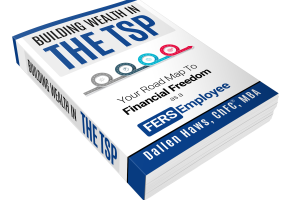Taking social security early is an attractive option especially for feds. Many federal employees retire in their early sixties and it just seems to make sense starting social security at 62. And for some people this truly is the best option. But in my opinion, many people that start benefits at 62 don’t understand all the ramifications that come with it. Let’s get into it.
Reduced Benefits
This is probably the most well known downside of starting benefits early. If your full retirement age is 67 (your full retirement age is based on the year you were born) and you start benefits at age 62, your benefits will be decreased by 30%.
For example, if your benefit is $2,500/month at your full retirement age, you’d only receive $1,750/month if you start benefits at 62. This reduction is permanent and will continue for the rest of your life.
And the closer you get to your full retirement age before you start, the higher percentage of your benefits you’ll be eligible for as seen in the chart below (based on a full retirement age of 67).
And as you might have noticed from the chart, if you are able to delay drawing benefits until after your full retirement age, you will be eligible for an even higher monthly amount.
For example, if your full benefit is $2,500/month but you are able to wait until age 70 to start drawing, you will be able to receive $3,100/month.
The obvious downside for delaying benefits however is that you might need an alternative income source while you wait. You will want to be careful to not deplete your retirement savings too much (ie your TSP) during this waiting period if you decide to delay benefits.
Working at The Same Time
Another thing that many people don’t realize is that before your full retirement age for social security, if you continue to work, your benefits will be reduced if you make over certain thresholds. In 2020, for every $2 that you make over $18,240 (the 2020 threshold) your benefits will be decreased by $1.
For example, let’s say a federal employee retired from federal service at 62 at which point he decided to start social security. But to keep himself busy he decided to work part-time from which he makes $40,000/year. Because he is not yet his full retirement age for social security purposes, his social security will be decreased because he is making over the 2020 threshold of $18,240. He made $21,760 over the threshold so his social security benefits will be reduced by $10,880 the next year.
Once you reach your full retirement age then your benefits won’t be reduced regardless of how much you make.
While many feds don’t plan on working in retirement there are many that might to give their retirement savings a little more padding. Regardless of your plans, make sure you understand the social security ramifications so that you don’t have any surprises along the way.
Survivor Benefit
When you decide to start social security early, it not only reduces what you get when you are alive but also what your spouse is eligible for if you were to pass away first.
Both spouses may be eligible for social security but once one spouse passes away, the surviving spouse can only keep one of the benefits (whichever one is higher).
For example, let’s say you are eligible for $2,500/month and your spouse is eligible for $1,500/month. If you were to pass away first, your surviving spouse would be able to continue your benefit of $2,500 (because it is higher) but her benefit would stop.
This means that if you decide to take social security early, let’s say at 62, your monthly benefit would be reduced to $1,750 and once you passed away, your spouse would receive that reduced amount.
Some people have enough other income or savings that this reduced amount won’t dramatically affect their plan. But for others, this might be a major reason to delay social security.
Conclusion
At this point it may seem that I am a huge proponent of delaying social security. And in general, I am, but it has to make sense for you. There is no one strategy that is perfect for everyone because it is possible to wait too long as well.
For most federal employees, social security is a big player in their retirement plan. Getting it right can make a big difference for the rest of your life. You will have to look at your situation to see what makes sense for you to set yourself up for success in retirement.


